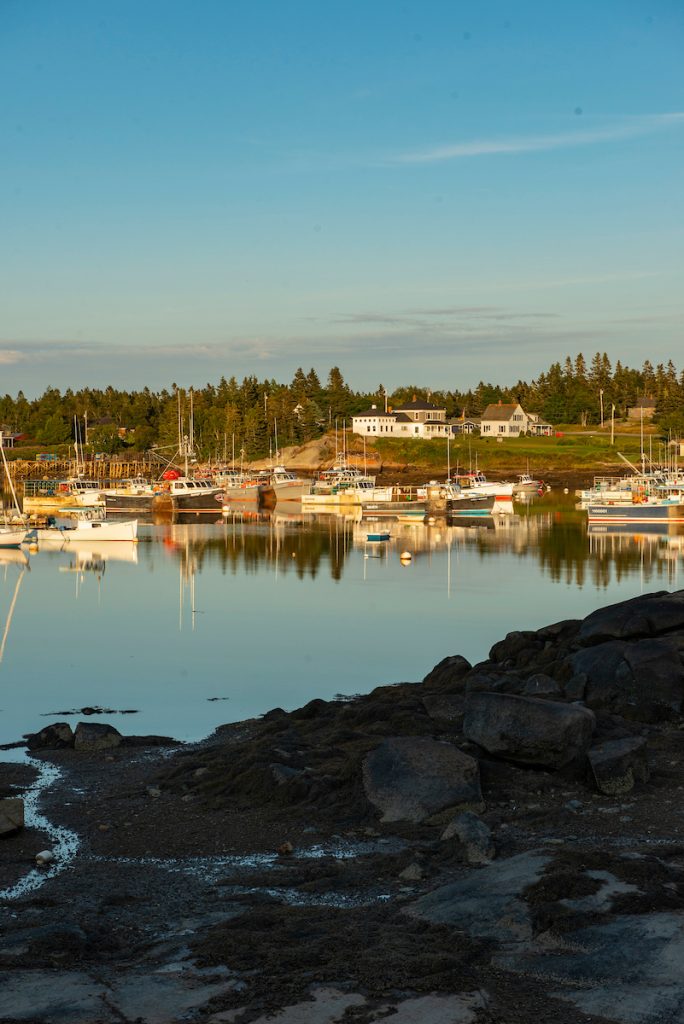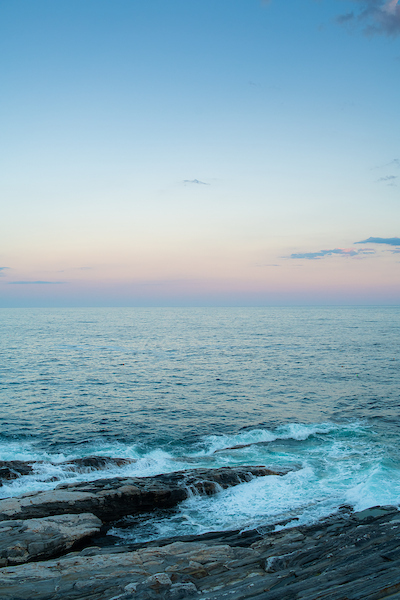About the Accessing the Maine Coast Program
about

In March 2007, partners from Maine Sea Grant, Maine Coastal Program, The Center for Law and Innovation at the University of Maine School of Law, and Island Institute received a grant from the National Sea Grant Law Center to conduct research on legal and policy tools for coastal access in Maine. The findings from this research resulted in the legal memo Legal Tools to Enhance Public Coastal Access While Protecting Private Property Rights and form the legal foundation of this site.
The partners, working alongside the Maine Working Waterfront Coalition, continued to identify new community-based access needs, and several significant revisions to the site have occurred since 2007. The first review was to address a need for more detailed information on the barriers and opportunities that tax policies pose for working waterfront access preservation. In response, Maine Sea Grant and partners worked with the Maine Department of Revenue Services and the Portland, Maine law firm of Bernstein Shur to secure additional funding from the National Sea Grant Law Center in 2009. Extensive research on tax-based tools resulted in two legal memos Tax-based Opportunities for Working Waterfront Protection and Working Waterfront Tax Strategies which were used to add significant legal basis for this site.

A second and more substantial update to the whole structure occurred in 2025, when the website received a complete technical overhaul and a deeper updating of its content. On the new content side, a University of Maine Graduate student (B. Lauer), with support from Maine Sea Grant and partners at the Coastal Access Strategy Exchange, compiled extensive new content related to coastal access for commercial harvesters who depend on the intertidal zone to make a living.
Finally, recognizing the substantial impact that storms, sea level rise, flooding and other hazards are increasingly having on physical coastal access and working waterfronts, a new section was added in the website overhaul called “Resilience Initiatives” which is intended to serve as a launching pad for the growing body of work addressing these emerging and rapidly changing challenges. This new section also provides a home on the web for the Maine Working Waterfront Coalition.
This website is a living document and we invite you to be in touch about resources that you think would be useful additions. Please contact wwfaccessinfo@maine.edu
Working Waterfront: Part of Maine’s Coastal Identity
For decades, coastal state policymakers across the country have grown progressively more concerned over the disappearance of large percentages of working waterfront access (land that provides access to coastal waters for persons engaged in water-dependent fisheries and marine-related businesses). In Maine, nearly 70% of Maine’s working waterfront access is privately owned and therefore vulnerable to conversion to another use if sold on the open market. Of Maine’s 149 coastal towns and over 5,300 miles of coastline, only 20 miles of the coastline are devoted to commercial fishing today. Working waterfront is increasingly replaced at the shoreline by residential and other development more competitive in today’s economy than traditional, functionally water-dependent uses.
This trend apparently results from mounting pressures related to population growth and migration, increasing residential and recreational demand and development on the coast, and declining fishery stocks. In the past thirty years, there has been an unprecedented migration nationwide to the coast, to the point that more than half of all Americans live in the country’s coastal counties.
Many newcomers are not accustomed to the sights, smells, and sounds that can come with a functional working waterfront. In addition, with increasing population has come higher demand for living space, higher land values, and, with “highest and best use” tax policy, higher property taxes near the water. Meanwhile, many fisheries stocks have declined, and the average fishing income has declined in relation. By extension, smaller, shorefront boat shops, bait shops, and other water-related businesses have similarly suffered.
Meanwhile, it is well established that traditional working waterfront industries play a vital role in the overall economy of coastal states, contributing to diverse opportunities for employment and skills training, but also to coastal tourism. Fishing, in particular, supports a wide array of associated businesses and trades, all dependent to a greater or lesser extent on access or proximity to the water. These water-dependent uses, together with the water-related and water-enhanced businesses and industries they support, have been shown to far exceed the economic value of shoreside residential development.
The concerns of planning experts, legislators, and voters across the nation have led to numerous responses. Recognizing the severity of working waterfront loss, coalitions have been built, task forces have been convened, and studies have been performed in most coastal states, resulting in increased public and legislative awareness of the issues. See Resources for more information on these efforts.
Defining Working Waterfront
partners in developing the web resource
Maine Sea Grant Maine Sea Grant’s mission is to play a leadership role in marine science and education and to promote their use in the sustainable development, management, and stewardship of marine and coastal resources.
Island Institute Island Institute is a membership-based community development organization focusing on the Gulf of Maine, particularly the fifteen year-round island communities off the Maine coast. Island Institute has led the way in mapping all remaining working access on the coast of Maine.
Maine Coastal Program The Maine Coastal Program works to sustain Maine’s coastal resources and maritime economy. The Program is administered by the Maine State Planning Office.
National Sea Grant Law Center The National Sea Grant Law Center conducts research on marine laws and policies, coordinates ocean and coastal law researchers, and disseminates information to coastal and ocean policy-makers.
University of Maine School of Law’s Center for Law and Innovation The Center for Law and Innovation of the University of Maine School of Law supports Maine’s investments in science and technology by studying and teaching about the role of intellectual property law in economic development.
University of Maine MARINE Initiative The Marine Aligned Research, Innovation, and Nationally-recognized Education (UMaine MARINE) initiative builds on the University of Maine’s marine programs to unite marine-related faculty, staff, and students across the University of Maine System with each other and with collaborators from industry, government, and the community.

